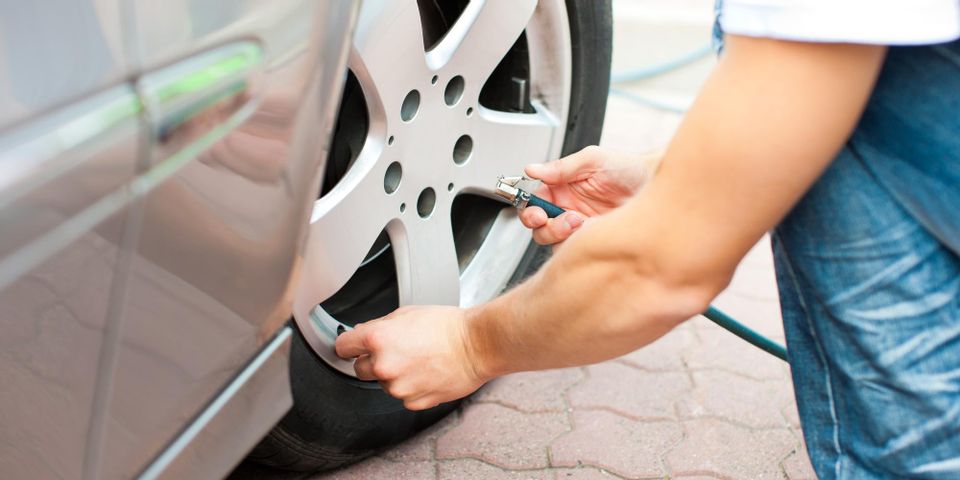
A flat tire can leave you stranded on the side of the road or unable to get out of your garage. To minimize the odds of getting a flat, you should monitor and maintain the pressure in all of your vehicle’s tires. Learn some tips for checking tire pressure and the benefits of performing this task below.
How to Check Tire Pressure
First, find out the appropriate pressure for the brand and size of your tires. On newer cars, this information can often be found on a sticker on the inside frame of the driver's side door. For older cars, consult the owner's manual for proper pressure levels. If you don't have access to the owner's manual, contact the tire manufacturer. Most passenger cars need a psi of 32 to 35.
Only check the pressure once the tires are cool to the touch. Friction from the roads increases heat and pressure inside the tire, resulting in inaccurate readings. If you can comfortably place your hand on the tire, it's safe to proceed.
Remove the valve cap on a tire, and position your pressure gauge on the valve stem. Press down on the gauge until the hissing stops and the seal is snug. Depending on the type of gauge you have, the current pressure reading will either appear on the numbered psi bar or a digital readout.
Benefits
 Checking tire pressure is essential for your safety. Low tire pressure can make a vehicle much harder to control, decreasing your ability to steer and navigate effectively. This can prevent you from bringing the car to a stop on demand, increasing the chance of an accident.
Checking tire pressure is essential for your safety. Low tire pressure can make a vehicle much harder to control, decreasing your ability to steer and navigate effectively. This can prevent you from bringing the car to a stop on demand, increasing the chance of an accident.
Without routine pressure checks, you may not notice a puncture slowly deflating a tire. You'll eventually find a flat tire on the vehicle or blow out the tire when the car is in motion.
Low pressure also causes the sidewalls of tires to expand and contract. This creates heat that can worsen tread wear, jeopardizing the longevity and strength of your tires.
For pressure checks, air refills, and flat tire repairs, trust the professionals at AutoTech. Serving the Kealakekua, HI, area for more than 14 years, they offer a wide range of auto repair services. Their ASE®-certified master technicians perform everything from vehicle inspections and flat tire repairs to transmission service and engine replacements. Call (808) 322-8881 to make an appointment, or visit their website for a complete list of services.
About the Business
Have a question? Ask the experts!
Send your question

